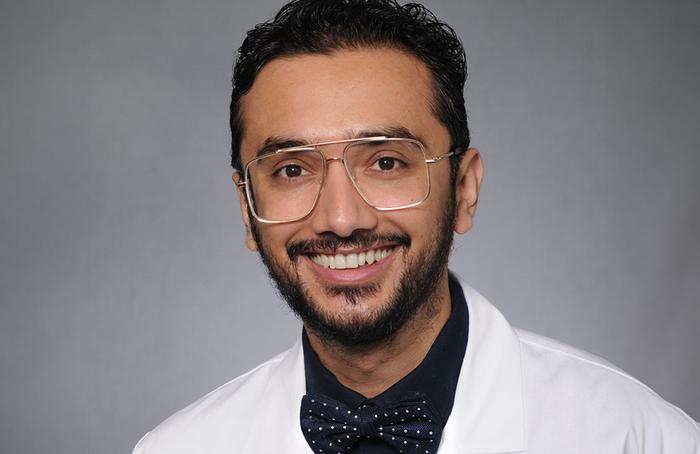
The landscape of cancer treatment continues to evolve, particularly with regard to neuroendocrine tumors, which have long posed a formidable challenge due to their complex biology and aggressive nature. The recent clinical trial launching at Sylvester Comprehensive Cancer Center, under the direction of Dr. Aman Chauhan, marks a significant milestone in the fight against high-grade neuroendocrine tumors. This trial will rigorously test a novel combination of immunotherapy and an oncolytic virus targeting these elusive tumors, potentially offering new hope for patients afflicted by this aggressive cancer type.
High-grade neuroendocrine tumors, which manifest from neuroendocrine cells within various organs, present unique therapeutic challenges. Their aggressive behavior and rarity have historically limited research efforts and therapeutic advancements, leaving few options beyond conventional chemotherapy. Recent developments have illuminated these tumors as a significant area in oncology research, particularly as they exhibit unique biological mechanisms that can be targeted by innovative treatment approaches.
Dr. Chauhan’s new trial represents a groundbreaking effort to harness the power of the immune system in conjunction with novel virotherapy. The inclusion of checkpoint inhibitors—agents designed to enhance the immune response to tumors—complements the use of SVV-001, a strain of Seneca Valley Virus that selectively infects and destroys tumor cells. This dual approach aims to convert traditionally “cold” tumors—those that elicit minimal immune response—into “hot” tumors that can effectively engage the immune system.
The premise of using oncolytic viruses like SVV-001 lies in their ability to invade cancer cells, proliferate, and ultimately cause the cells to rupture, releasing tumor antigens that can stimulate a robust immune response. By integrating checkpoint inhibitors such as nivolumab and ipilimumab, the treatment is designed to amplify the ensuing immune reaction, potentially leading to a dramatic increase in the effectiveness of the therapeutic regimen.
Neuroendocrine tumors often demonstrate significant variability in their responsiveness to conventional treatments, and evidence of efficacy with existing chemotherapy regimens is limited. The trial’s innovative approach seeks to address these inadequacies by utilizing a combination therapy designed specifically for high-grade cases that have either become resistant to previous therapies or have failed to respond adequately to standard-of-care options. The early insights from preclinical studies suggest that this combination therapy could lead to durable responses, emphasizing the critical need for comprehensive and innovative research approaches in this field.
Furthermore, the trial not only aims to assess safety and efficacy but also incorporates biomarker analysis, targeting a newly identified marker called TEM8 found on tumor cells. This biomarker serves as a crucial point for the attachment and infection ability of SVV-001, establishing a targeted immunotherapeutic avenue. By measuring the presence of TEM8 in patient tumors, researchers hope to enhance the precision of the treatment and improve overall outcomes, potentially offering a more personalized cancer care strategy.
The patient cohort for this trial will consist of approximately 36 individuals who meet specific criteria related to their tumor type and previous treatment history. This relatively small yet focused group allows for a thorough evaluation of the combined therapeutic approach while fostering an environment conducive to detailed scientific inquiry. The results from this trial could have far-reaching implications for the treatment of high-grade neuroendocrine tumors, potentially paving the way for similar strategies in other cancer types that exhibit comparable challenges.
As the trial progresses, ongoing assessments of the relationship between tumor response and the presence of biomarkers such as TEM8 will be critical in understanding the nuances of patient response to therapy. This integration of biomarker analysis into clinical trials reflects a broader trend in oncology research aimed at optimizing treatments based on individual biological characteristics. This specificity may not only enhance the efficacy of the treatments being studied but also minimize adverse effects associated with less targeted therapies.
The implications of this trial extend beyond immediate patient outcomes; they are indicative of a paradigm shift in how cancer treatment is approached in the context of emerging scientific knowledge. By making inroads into the complex interplay between the immune system and tumor biology through innovative strategies like oncolytic virus therapy and immunotherapy, researchers are redefining the boundaries of effective treatment. Each significant advancement potentially galvanizes additional investment and interest in the neuroendocrine tumor research domain, thereby catalyzing future breakthroughs.
Support for neuroendocrine cancer research also exemplifies the critical role that advocacy and community engagement play in advancing scientific progress. The legacies of individuals lost to this relentless disease remind us of the stakes involved and the urgency for continued innovation in cancer treatment. Organizations and foundations borne from the experiences of families affected by neuroendocrine tumors serve as beacons of hope, providing essential resources that facilitate research funding and patient support initiatives.
In conclusion, the intersection of innovative therapies like SVV-001 and established immunotherapy represents a compelling frontier in the fight against high-grade neuroendocrine tumors. As the clinical trial at Sylvester Comprehensive Cancer Center unfolds, it holds the promise not only of improving outcomes for those with high-grade tumors but also of enhancing our understanding of cancer biology. This trial exemplifies the relentless pursuit of medical science to conquer one of the most challenging diseases known, inspiring a future where cancer patients can face their diagnosis with renewed optimism and hope.
Subject of Research: Clinical trial for high-grade neuroendocrine tumors using a combination of immunotherapy and oncolytic virus.
Article Title: Innovative Clinical Trial Combats High-Grade Neuroendocrine Tumors at Sylvester Comprehensive Cancer Center.
News Publication Date: April 9, 2025.
Web References: Sylvester Comprehensive Cancer Center, ClinicalTrials.gov.
References: None provided.
Image Credits: Photo by Sylvester.
Keywords: Neuroendocrine tumors, immunotherapy, oncolytic virus, checkpoint inhibitors, cancer research, clinical trials, cancer treatment, biomarker analysis, therapy resistance.
Tags: challenges in neuroendocrine cancer researchcheckpoint inhibitors in cancer therapyclinical trial for neuroendocrine tumorsDr. Aman Chauhan cancer studyhigh-grade neuroendocrine cancer treatmentimmunotherapy for aggressive cancersinnovative treatment approaches for rare cancersnovel combination cancer therapiesoncolytic virus therapy in oncologySVV-001 Seneca Valley Virus therapySylvester Comprehensive Cancer Center researchunique biological mechanisms of tumors





